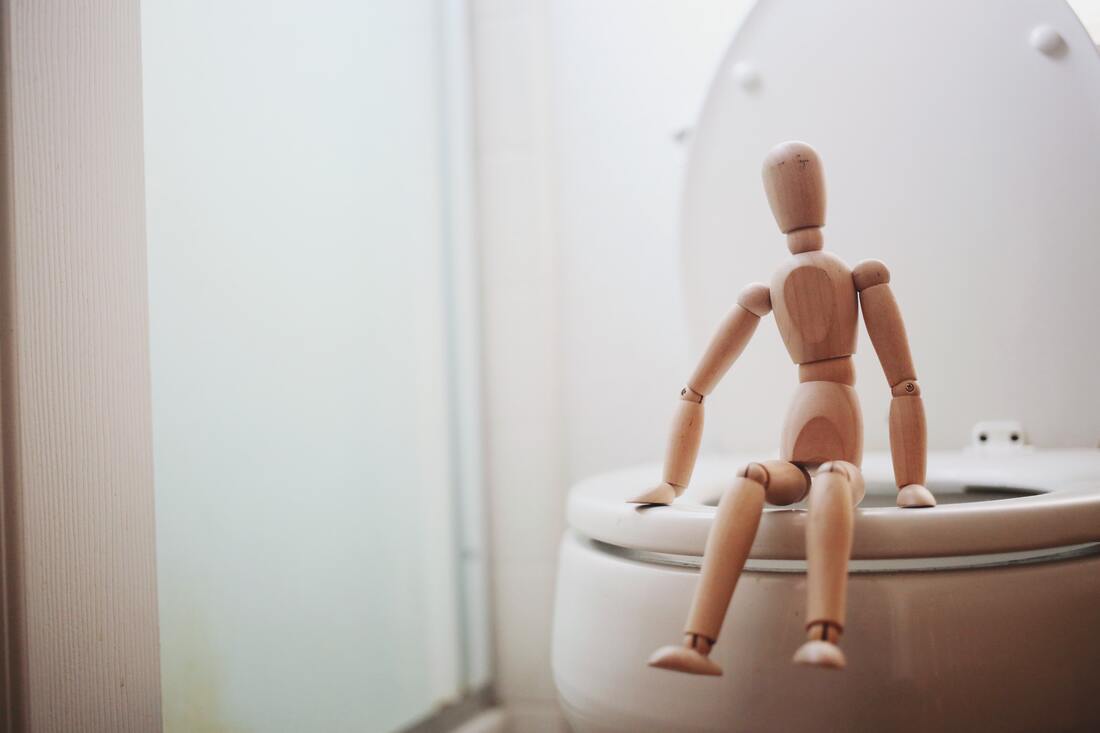Urinary incontinence is the involuntary loss of urine. Urinary incontinence can happen to anyone of any age, gender, race or income however, it is more common in women. Urinary incontinence may be associated with certain conditions such as a history of childbirth or pregnancy, and has a variety of other contributing lifestyle factors (for example, age, BMI, intake of carbonated drinks or coffee).
Stress urinary incontinence is the most common kind of urinary incontinence. Stress urinary incontinence is when you leak urine when doing physical activity, coughing or sneezing. Stress urinary incontinence can be improved and managed through lifestyle changes and pelvic floor muscle exercises, which are often incorporated into Pilates. One of Pilates biggest benefits is its ability to improve a person's mind-body connection - helping with day to day life as well as with long term injuries and chronic pain conditions Pilates exercises promote deep breathing, which in turn helps the Pilates student gain a greater sense of their body and where all of their muscles are and how to activate them appropriately. In Pilates classes you learn about yourself and your body from the inside out. You learn to listen to your body and use Pilates exercises to strengthen, lengthen and support it while learning how to correctly release tension from muscles. Pilates is a great way to keep fit, improve your posture and coordination. It is also a good way of getting back into exercise if you haven't exercised in a while, have been injured, or have recently given birth (at least 6 weeks postpartum is recommended before commencing Pilates) . Pilates can help women with urinary incontinence focus on their pelvic floor muscles by doing Pilates exercises designed for this condition. Pilates instructors may cue specific times to engage or relax the pelvic floor during specific movements and breaths as appropriate. Pilates is a low-impact exercise that helps to improve muscle tone, strength and flexibility while being gentle on the pelvic floor. Pilates is an exercise routine that uses slow, smooth and flowing movements performed on a mat, with the use of specialised equipment, such as reformers. If you suffer from urinary incontinence please know that you aren't alone, and there are many health professionals here to help! Book an appointment with one of our friendly physiotherapists here at Articulate Physiotherapy Tarragindi to better understand your pelvic floor and its relationship to stress urinary incontinence We'll show you where it is, what it does, and how to activate and strengthen it with Pilates (we have Pilates Reformer classes running 7 days a week)! Not sure if Pilates is right for you? Give one of our friendly Tarragindi Phyisio & Pilates team a call on 07 3706 3407 or email us at [email protected] Hein JT, Rieck TM, Dunfee HA, Johnson DP, Ferguson JA, Rhodes DJ. Effect of a 12-Week Pilates Pelvic Floor-Strengthening Program on Short-Term Measures of Stress Urinary Incontinence in Women: A Pilot Study. J Altern Complement Med. 2020 Feb;26(2):158-161. doi: 10.1089/acm.2019.0330. Epub 2020 Jan 9. PMID: 31916840; PMCID: PMC7044776. Priya Kannan, Wai Hin Hsu, Wai Tung Suen, Lok Man Chan, Ayelet Assor, Chun Ming Ho, Yoga and Pilates compared to pelvic floor muscle training for urinary incontinence in elderly women: A randomised controlled pilot trial, Complementary Therapies in Clinical Practice, Volume 46, 2022, 101502, ISSN 1744-3881 https://doi.org/10.1016/j.ctcp.2021.101502. Pedriali FR, Gomes CS, Soares L, Urbano MR, Moreira EC, Averbeck MA, de Almeida SH. Is pilates as effective as conventional pelvic floor muscle exercises in the conservative treatment of post‐prostatectomy urinary incontinence? A randomised controlled trial. Neurourology and urodynamics. 2016 Jun;35(5):615-21.
0 Comments
Leave a Reply. |

 RSS Feed
RSS Feed